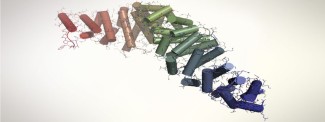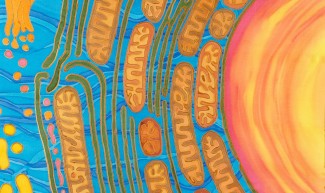The neuromuscular junction is the area that enables transfer of information from the nervous system to muscles. It is composed of a motor neuron that transfers information to a muscle thanks to a neurotransmitter called acetylcholine. The contact zone between the two creates a synapse, with a presynaptic neuron and a postsynaptic muscle.
Understanding how this junction is formed is essential given that dysfunction is involved in many pathologies including myasthenia.
An increasing number of studies suggest that a family of proteins called Wnts may play a key role in neuromuscular junction formation in several vertebrate species. Functions and molecular mechanisms they are involved in, however, remain unclear.
Laure Strochlic from the team led by Bertrand Fontaine and collaborators used experimental modelling to test the role of different Wnt proteins in neuromuscular junction formation and signaling cascades, meaning the sequence of events within cells they act upon.
Results show that Wnt4 and Wnt11 proteins play a key role in neuromuscular junction formation. They regulate axon growth (neuron extension that conducts the electric signal) in motor neurons and, additionally, they activate acetylcholine receptor grouping in muscles. Researchers also found that the action of these proteins is mediated by two different Wnt signaling pathways that are essential in development: the “β-catenin” pathway and the PCP pathway (Planar Cell Polarity).
As a whole, these results shed new light on a mechanism that enables neuromuscular junction implementation. This data opens up new perspectives in treatment of illnesses that affect neuromuscular transmission including myasthenia using Wnt pathway-modulating pharmacological molecules.
Sources
https://pubmed.ncbi.nlm.nih.gov/28348167/
Messéant J, Ezan J, Delers P, Glebov K, Marchiol C, Lager F, Renault G, Tissir F, Montcouquiol M, Sans N, Legay C, Strochlic L. Development. 2017 Mar 27.







